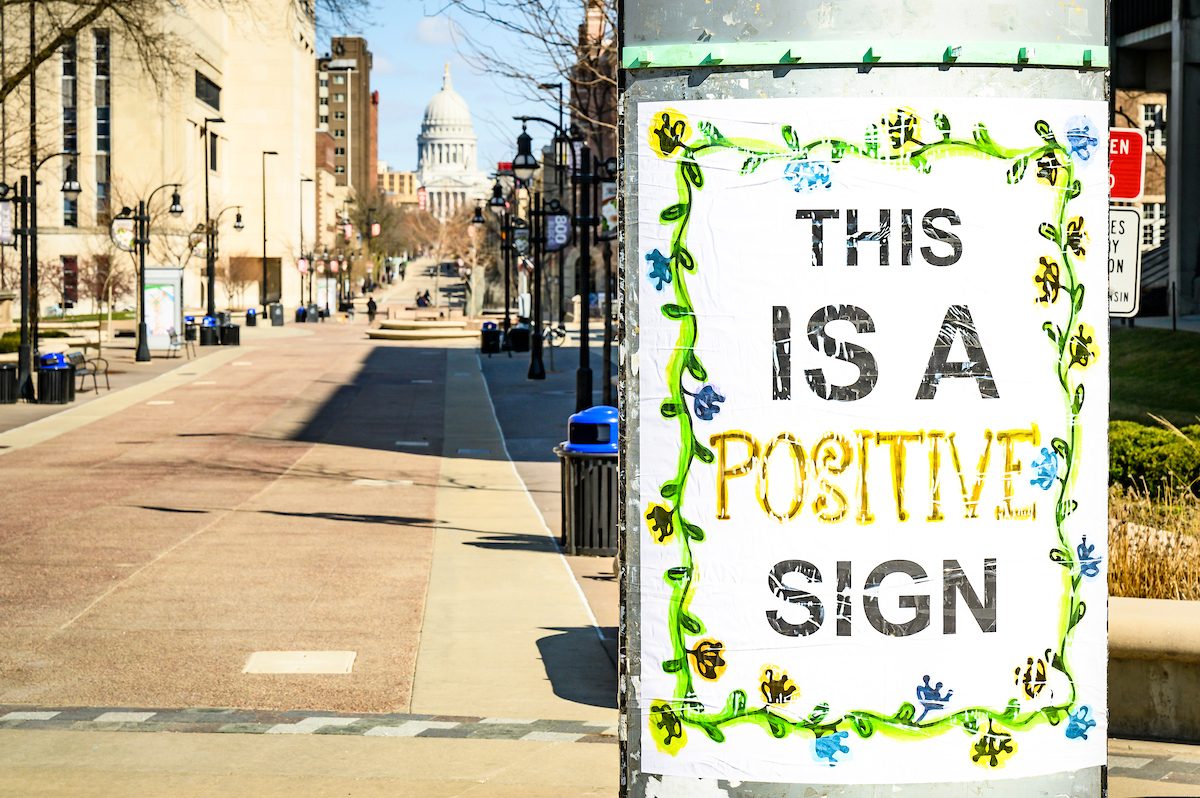Coping with Isolation and Uncertainty
UW Mental Health Services addresses an urgent need for care.
University Health Services’ mental-health department has adapted its resources to assist students during the COVID-19 pandemic.
Mental Health Services (MHS) has adjusted all of its sessions — such as one-on-one and group-therapy appointments — to be entirely virtual. It has also built out license-adhering offerings to ensure that students living out of state have access to care, including an initiative known as Virtual Processing Spaces, which facilitates informal conversations between students to help them cope with isolation, loss, uncertainty, and discrimination. Staff members reach out to students living on and off campus who are in quarantine or isolation as well, and a Badger Virtual Care Package lends tips on topics such as connection, rest, exercise, nutrition, and academic support.
Despite being virtual, the unit’s offerings have been used at about 90 percent of their usual rate, according to Sarah Nolan, MHS director. She adds that MHS has seen an increase in students contacting them for urgent care: compared to fall 2019, crisis appointments spiked by about 200 percent from August through November, and by about 400 percent in October alone.
“The reality is that people’s cups are fuller than they typically would be and people have less room to cope. I think people are more likely to be in urgent need of care than they were before [COVID-19],” she says, citing the stress, anxiety, and grief the pandemic has caused.
Anxiety and depression have long been the top two mental-health concerns among students, Nolan says, and that has continued to be the case. In addition to addressing these concerns, she and fellow MHS staff members are working to improve student support related to long-standing racial injustices. MHS launched a new, long-term student advisory board this semester, which meets regularly to collect student input.
“We’re trying to set up conversations with students to understand what needs aren’t getting met and what access issues there might be,” Nolan says. “We all have a lot of work to do in this area.”
Due to numerous uncertainties resulting from the pandemic, Nolan notes that MHS staff strive to prepare students for their lives after college.
“We don’t know what’s going to come next, and so it’s a reminder that we need to help students build resilience; we need to help them build empathy for one another; we need to help them build coping strategies and things that you don’t necessarily learn in a traditional classroom,” she says. “My hope is that’s the takeaway here, and it feels like people on campus are really getting it. That, to me, is really uplifting and says a lot about the UW community.”
Published in the Spring 2021 issue




Comments
No comments posted yet.